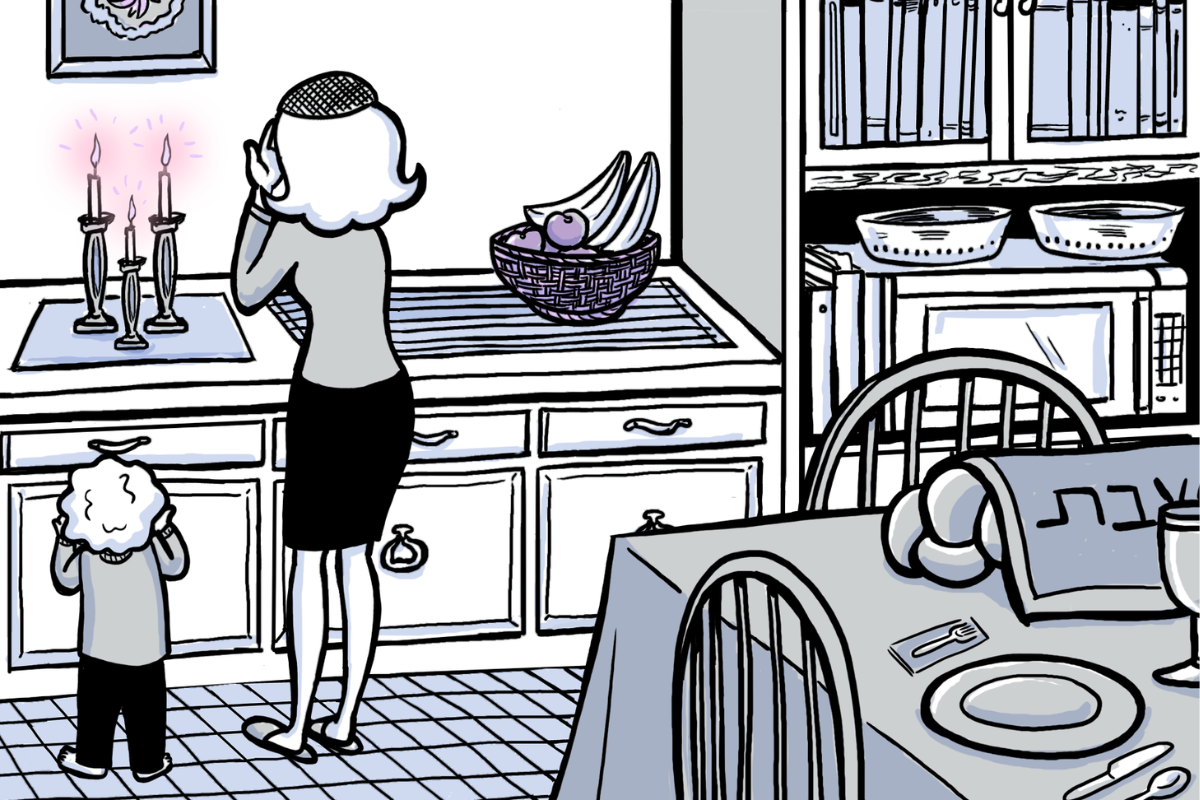It was a Friday morning in 2014 when I received the news that I was going to miscarry. I was 10 weeks, five days along and had been bleeding for a couple of weeks. The bleeding started to get heavier, so I went to my doctor to get it checked out.
It was the first and only doctor’s appointment that my husband wasn’t around for; he was at the airport, about to embark on a five-day trip chaperoning a group of high school boys for a baseball tournament, which unfortunately meant I had to process the bad news and the progressively worsening spotting on my own.
And of course, it had to be a Friday. As an Orthodox Jew, Fridays are always the craziest days of the week as we prepare for Shabbat. Somehow, all health emergencies also happen to take place on Fridays in our household. But usually, my very supportive husband isn’t over 2,000 miles away.
My OBGYN wanted me to see a specialist that day to confirm what was going on. I didn’t know how I was going to make it through that big appointment on my own, as well as the next five days, without my husband. We had a very hyperactive 17-month-old boy that needed attention and energy, both of which I was short on. I felt terrified and completely alone.
This is where the incredible existence of Judaism stepped up to help me get through one of the scariest times of my life.
I was living in Los Angeles, across the country from the rest of my family. When you’re a transplant, a quick way to find a new community is through synagogues. I am grateful to have built very solid friendships over the years that way. But what’s amazing is how the community comes together to help support those who are in need, especially those going through health issues.
Over the course of the next five days, my condition worsened, but my support system grew stronger. My community stepped up in so many ways; I didn’t go to another doctor’s appointment alone. When my bleeding worsened, I was unsure if I should break the rules of Shabbat to pick up a phone and call my doctor. I understood that I could break Shabbat if my life was in danger, but the doctors had all told me that what I was going through was a “routine” miscarriage. So if the bleeding was “normal,” it’s not an emergency, right? But a friend firmly told me, “If you don’t call, I will.” So I picked up the phone and called my doctor’s office, which gave me the clarity and peace of mind that I was doing all that I could.
Not having my husband there to talk this all through was difficult. But I also knew exactly which neighbors would be home on Shabbat morning with a comforting blend of tea and could give me the sound advice that I needed.
Some friends drove me around to appointments and errands; others took my son to and from school. Food and ice cream were brought to my door so I didn’t have to get up from the couch or bed I was resting on. I can’t even imagine how I would have gotten through this time without their support.
But the moment I appreciated Judaism the most was when I saw the specialist. He informed me that if my body did not take care of the miscarriage itself, I would have to look into other options, like abortion. The word “abortion” is such a triggering word; just the thought of having to decide to terminate a pregnancy that was very much wanted made me feel ill. My baby had a heartbeat that morning, but the ultrasound showed no brain. What if the ultrasound was incorrect? My sister was supposed to be a boy, and clearly that turned out to be wrong.
However, my dream was to have two children close in age. If my fetus was not viable (which it clearly wasn’t, given the cramping and bleeding I was experiencing as well as the missing brain), I wanted it out ASAP so that I could have the chance to still try for two kids a couple of years apart. Knowing that Judaism is supportive of abortions like this brought me comfort; the only thing scarier than having to make the decision is not having the option at all. Thankfully, my body took care of the situation and released the fetus on its own.
I found out how lucky I was after the fact, because my ultrasound tech informed me that the missing brain in my fetus was something she had never seen that early on before in her many years of experience; usually it would come out around weeks 15/16 of pregnancy, and by then it would have been more harrowing for a whole number of emotional and physical reasons.
It’s not easy living 2,800 miles away from your entire family. It’s not easy being apart from your spouse during traumatic experiences. It’s not easy having to carry a baby that you know isn’t going to survive for very much longer. It’s not easy losing blood and feeling sick while also having to take care of a rambunctious toddler. These were all facts that were true for me while I was figuring out how to make it out through the other side of a miscarriage.
Having my community of friends and a set of beliefs to guide me, however, helped to at least ease up the emotional aspect of a very distressing experience. I’ve learned how important it is to open up to others in times of need, how relationships can be strengthened and how your experiences can be used to help others.
I hope that by sharing my story, I can help those who are suffering feel less alone… just like my community did for me.
Watch the author’s new animated short, “Miscarried: An ‘Unspoken’ Cartoonmentary,” based on this experience, here.








